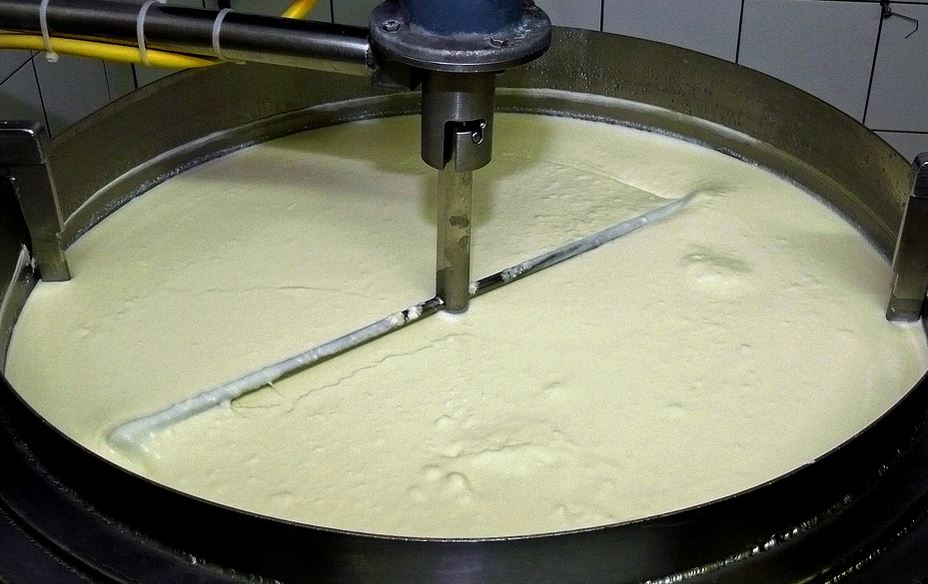Types, Health Benefits and Side Effects of Probiotics
What come to the mind of many of us are harmful organisms at the mention of the word “bacteria.” But this is not totally correct.
Yeah, there are many of these organisms that do harm to health. But there are also many that help you to enjoy a healthy life. These latter ones are called probiotics.
We discuss in this article practically everything you need to know about these “good” bacteria. What are the types and what benefits can they offer? Also, learn about side effects that might occur from taking them.
What are Probiotics?

Probiotics are live bacteria and yeast that are typically found in the digestive tract and believed to be good for you. They are just a portion of trillions of microbes, or very tiny organisms, which live in or on the human body.
The International Scientific Association for Probiotics and Prebiotics (ISAPP) described them as live microorganisms that provide a health benefit to a host when administered in right quantities.
Like most phenomena in health and medicine, the name of the bacteria has its origin in Greek. It comes from the words “pro” (promoting) and “biotic” (life).
Some other sources, however, say probiotic is a composite of Latin and Greek words.
Probiotics’ discovery is credited to Elie Metchnikoff. The Russian zoologist, who some call the “grandfather of probiotics,” had theorized that friendly bacteria in sour milk might help promote good health outcomes and prevent age-related issues. This was after observing impressive longevity among people living in rural Bulgaria despite harsh climate and severe deprivation of basic needs.
As stated earlier, there are very many microorganisms, including bacteria, viruses and fungi, in the body. An imbalance can result in health problems.
Probiotics are known to help in ensuring the right balance of microorganisms in the body. The right amount ensures that “bad” bacteria do not have the upper hand to cause you problems.
Types of Probiotics
There are many types of bacteria and yeast that may be described as probiotics. Most of these fall under two categories: Lactobacillus and Bifidobacterium.
A third category, Saccharomyces boulardii, is sometimes added to these two.
Lactobacillus
This is arguably the most studied group of probiotics. The Lactobacillus family of bacteria contains more than four dozen species. These microorganisms are the most common in probiotic supplements and foods.
Bacteria in this family are present naturally in your digestive tract as well as your urinary and genital systems.
Common strains of Lactobacillus you can find in foods and supplements include:
- acidophilus
- plantarium
- bulgaricus
- reuteri
- casei
- gasseri
Bifidobacterium
It is believed there are around 30 strains of Bifidobacteria. This makes the family the second most-common, after Lactobacillus.
These bacteria start to appear in the intestinal tract of a baby a few days after birth. They are present in arguably the highest numbers in the colon.
Among the popular strains in this family are:
- infantis
- bifidum
- lactis
- breve
- longum
Saccharomyces boulardii
This is a tropical, non-pathogenic species of yeast. It was discovered and isolated by French scientist Henry Boulard from lychee and mangosteen fruit in the 1920s.
- boulardii is the sole yeast probiotic. It helps against H. pylori, Clostridium difficile, and Candida albicans, among other pathogenic strains.
Other types of probiotics include the following families:
- Enterococcus
- Leuconostoc
- Streptococcus
- Bacillus
- Pediococcus
- Lactococcus
Health Benefits of Probiotics
There are two main ways by which these bacteria are thought to be beneficial. These have to do with effects on the digestive system and the immune system.
While probiotics mainly help these two systems, the benefits extend to anti aging and different areas of your body.
These benefits are so significant that the good bacteria are now receiving greater attention for their potential to help combat serious medical conditions.
Digestive system
You need a good balance of good and bad bacteria in your gut to enjoy great health. This is crucial for enhancing gut barrier function and regulating gastrointestinal motility.
A healthy balance of microbes in the gut facilitates elimination of harmful substances and toxins. It ensures there is enough good bacteria to counter the bad and to get rid of other waste products.
But certain factors can give rise to an imbalance. They include unhealthy diet, antibiotic use or overuse, other medications, and emotional stress. These allow harmful bacteria to have upper hand.
As a result of their effects on the digestive system, research suggests that probiotics can help with the following conditions, among others:
- Irritable bowel syndrome (IBS)
- Inflammatory bowel disease (IBD), such as Crohn’s disease or ulcerative colitis
- Diarrhea (resulting from infections or use of antibiotics)
- Abdominal pain
- Bloating
- Inflammation or ulcers due to chronic Helicobacter pylori infection
- Necrotizing enterocolitis
Immune system
Some experts think probiotics are more helpful for their effects on the immune system. The bacteria may boost your immunity. This can go a long way in preventing a variety of medical disorders.
A healthy balance of bacteria enables your immune system to function at its best. Issues you may be able to avoid as a result of this include:
- Allergies
- Autoimmune disorders, including rheumatoid arthritis, lupus and type 1 diabetes
- Skin or vaginal infections
- Fatigue and headaches
- Photodermatitis or sensitivity of your skin to sun rays
- Jaundice
Probiotics can help to arrest infections that recur from time to time as well.
In addition, researchers have observed that probiotics may assist with weight management. You can give them a try if you are trying to achieve or maintain a healthy weight.
Other ways these microorganisms are thought useful include:
- Promotion of good oral health
- Enhancement of reproductive health and function
- Prevention of constipation
- Lung support
- Treatment of joint stiffness
- Correction of sleep issues
Furthermore, probiotics have been suggested for treatment of different cancer forms, including esophageal cancer. They may help reduce colorectal and bladder cancer recurrence.
Dietary Sources and Supplements
If you wish to increase the number of good bacteria in your body, there are certain types of foods you should be eating. These are usually the kinds that are fermented.
Fermentation is a process whereby enzymes or microorganisms decompose or convert carbohydrates in foods to organic acids or alcohols. It is what boosts the health benefits of these foods.
Examples of fermented food products that are known to be very rich in probiotics include:
- Kimchi
- Kefir
- Sauerkraut
- Miso
- Tempeh
- Sweet acidophilus milk
- Yogurt
- Aged soft cheese
- Sour pickled vegetables
- Buttermilk
- Kombucha
Some foods are not fermented but enriched with strains of beneficial bacteria.
You can also take probiotics in supplement form. They are available as tablets, capsules, liquid or powder. These products are easy to get at natural or health food stores these days.
The supplements contain different strains. But most come with Lactobacillus species, Bifidobacteria or Saccharomyces boulardii. Bacillus coagulans bacteria are also common.
You should do your research thoroughly when looking to use probiotic supplements, though.
Probiotics vs. Prebiotics
Prebiotics is a related term to probiotics. Some people can easily mistake one for the other. But they are not the same.
Prebiotics refers to substances or chemicals that help to promote the growth or activity of microorganisms. The word comes from the Latin term ‘prae’ (before) and Greek ‘biotikos’ (fit for life or lively), derived from ‘bios’ (life).
You could think of prebiotics as what comes before probiotics. They are non-digestible carbohydrates or substances that may be fermented to enhance the growth of beneficial microorganisms in your intestines.
Both prebiotics and probiotics can be combined in a form of synergism for greater health benefits. In such a case, they are known as synbiotics.
Side Effects of Probiotics
While these beneficial organisms are considered generally safe, there are concerns that they may cause some issues in certain cases. These are more likely with the use of probiotic supplements.
Flatulence or passing of gas is experienced by some people after taking the bacteria. However, this often resolves after a few days of commencing use.
Stomach discomfort may occur in people with lactose intolerance. If you are one of such, dairy products aren’t an ideal dietary source of these beneficial microorganisms.
While probiotics are known to boost immune system, they can also worsen outcomes in some instances. The bacteria can make people with weakened immune systems to be sick.
There may be a greater risk of adverse health effects in individuals with medical conditions such as IBD, short bowel syndrome, or cardiac valve disease. Pregnant women, premature infants and the elderly may also be at risk with probiotic supplements.
In persons with severely lowered immune function or IBD, the bacteria could gain entry into internal organs from the gastrointestinal tract. Sepsis can result from bacteria or fungi in the blood and this can be fatal.
You need to consider possible interactions between whatever drugs you may be taking and probiotics. Caution is advised if you are taking a medication that affects your immune system.
What this means is that it is wise to speak with your doctor before deciding to up your intake of probiotics.
How to Take Probiotics Safely
The best way of getting these beneficial bacteria is through your diet. Supplements only become an option if you are not getting enough that way.
You should note that the U.S. Food and Drug Administration (FDA) treats probiotics the same way as foods. The implication is that manufacturers do not need to show their products are effective.
Therefore, you need to do your due diligence when purchasing products marketed for their probiotic effects. Make sure the one you buy contains live and active cultures of a microbe known to produce health benefits.
If the microorganisms are not alive, they are practically useless when you consume them.
The product you buy must also contain the right amount of beneficial bacteria to be of use.
The common advice is to take a minimum of one billion colony-forming units (CFUs) on a daily basis. A serving of yogurt is often enough to take care of that.
It is important to note that the particular benefits you have in view determine what strain or species of probiotics to consume. For instance, you want to check out Lactobacillus species if looking to treat or prevent diarrhea, skin disorders or urinary tract infection.
You need to do a bit of research to know what type of probiotics you should go for.
If you are confused about what bacteria to take, it is safe to start with strains from the Lactobacillus and Bifidobacterium families. These are present naturally in your gastrointestinal tract, which means they should be very safe.
Again, you should consider speaking with your doctor before you start to use or consume more of probiotic products. That is how you can be sure whether it is a great idea or not. You can also get direction on what types of bacteria and amount to take, if they are thought suitable.
REFERENCES
What Are Probiotics? Probiotic Supplements, Foods, Uses, Benefits, and Safety (https://www.webmd.com/digestive-disorders/what-are-probiotics)
Probiotics: Find Out About the Benefits and Side Effects (https://www.medicinenet.com/probiotics/article.htm)
Probiotics | Cleveland Clinic (https://my.clevelandclinic.org/health/drugs/14598-probiotics)
What are probiotics? – Mayo Clinic (https://www.mayoclinic.org/what-are-probiotics/art-20232589)
Probiotic – Wikipedia (https://en.wikipedia.org/wiki/Probiotic)



